Living In Our Car During Lockdown, How We Travelled Across India On a Small Budget
Harikrishnan and Lakshmi started their trip from Kerala and visited states like Karnataka, Maharashtra, Gujarat, Rajasthan, Punjab, Jammu and Kashmir and Himachal Pradesh. They chronicle their experiences on YouTube, with over 100,000 subscribers.
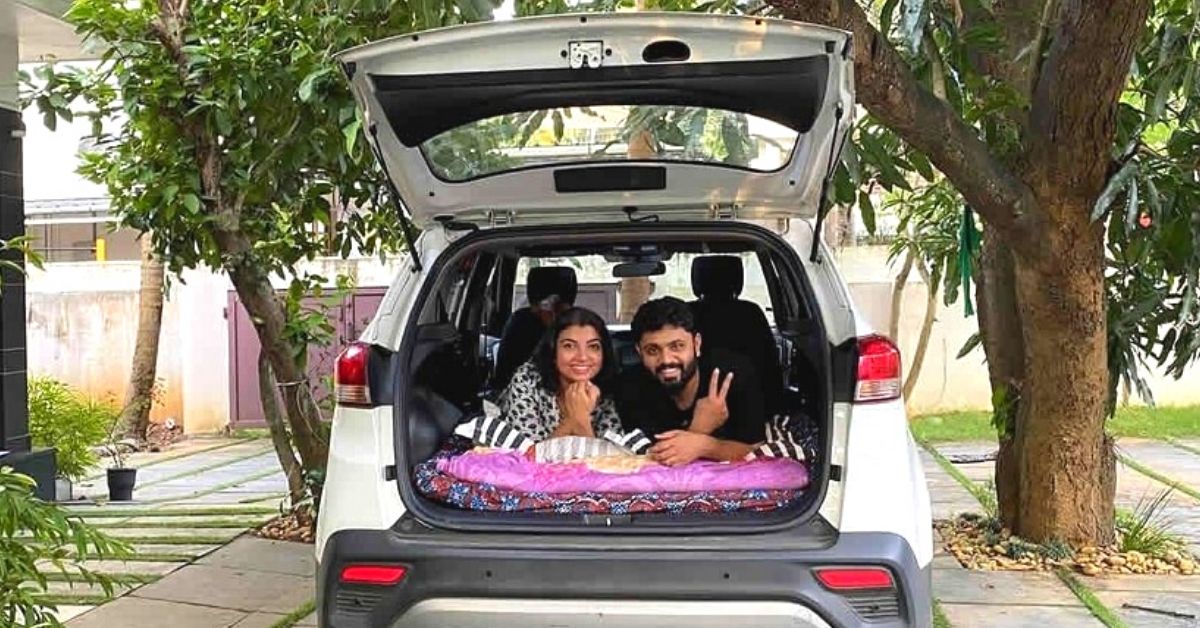
It’s close to 10.30 am on 15 April, 2021, and Harikrishnan and Lakshmi are relishing their piping hot tea in Rishikesh. Today is their fourth day in the city of sacred rivers and mountains, and they have just ticked off river rafting on their bucket list.
Despite low network coverage and the occasional noises of vehicles passing by, the couple is enthusiastic about discussing their road trip experiences across eight states — Karnataka, Maharashtra, Gujarat, Rajasthan, Punjab, Jammu and Kashmir, Himachal Pradesh and Uttarakhand — amid the COVID-19 pandemic.
“We started the trip from our house in Thrissur, Kerala after quitting our respective jobs in October 2020. The pandemic had stalled our plan to travel to Thailand on a bike, so we channeled our travelling bug to a lesser ambitious car trip in India. Our original plan was to return home in two months, but after seeing the breathtaking beauty of the places we visited, and experiencing the warmth of people and mouthwatering food, we decided to extend our trip. Each corner of India has something different to offer,” Harikrishnan (31) tells The Better India.
The couple have chronicled their journey through travel vlogs on their YouTube channel, ‘Tinpin Stories’, under their series, ‘Living the car life in India’. Yes, their car doubles up as their home while on the road. The idea is to live, sleep and travel in this vehicle in order to make this a budget-friendly journey, especially considering that the Indian economy has taken a serious hit due to the pandemic.
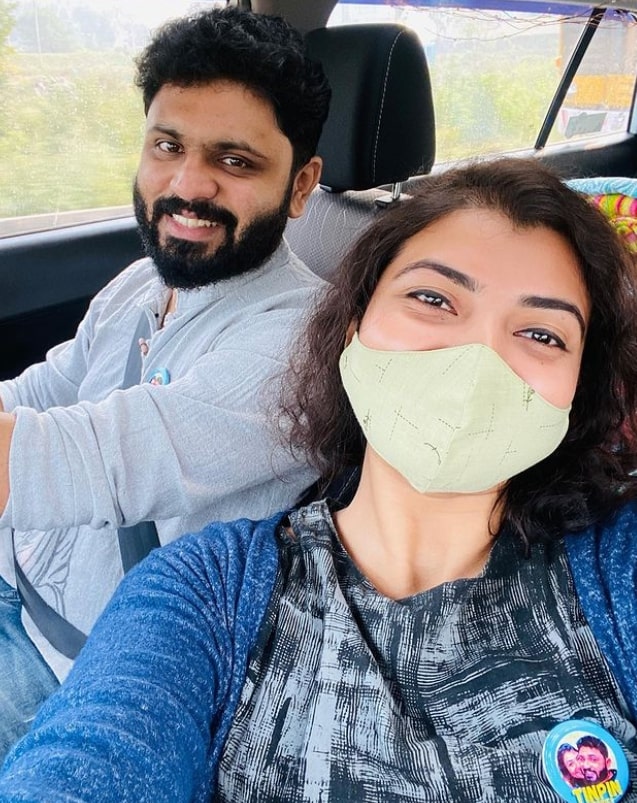
They have already covered a distance of more than 10,000 kilometres, and are well within their budgetary confinements (Rs 2,50,000). At present, their earnings come from freelancing and their monetised YouTube channel.
A makeshift home
Under any other circumstances, the trip may seem impressive. But against the backdrop of a pandemic, it raises several disclaimers, the foremost being the safety from coronavirus, followed by incessant lockdowns, border closures, and availability of food. To tackle these issues, the couple modified their car, made it self-sufficient and were flexible enough to alter routes.
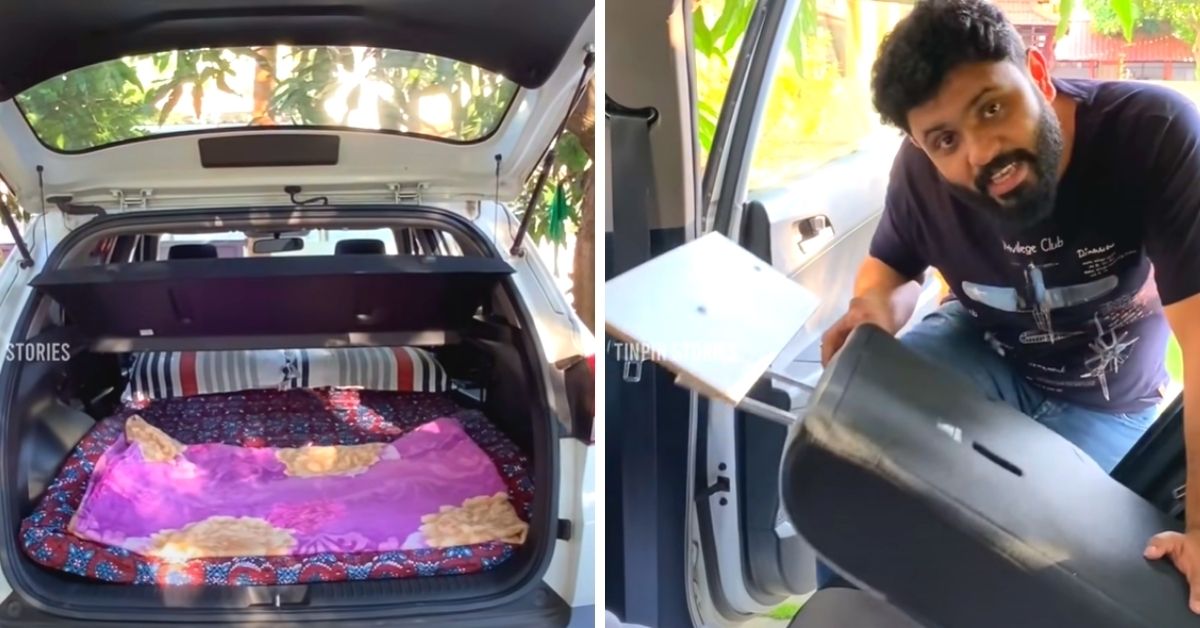
“We have always been fond of traveling, and after our marriage, had gone to Thailand. That’s when we created our channel and posted our first vlog.
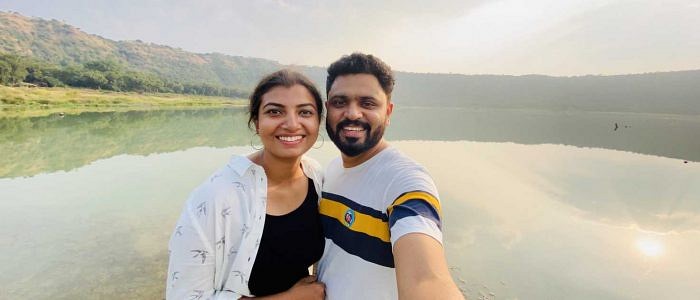
A single-burner stove, a five litre cooking cylinder that can be refilled, and three 20-litres plastic cans for drinking and non-drinking chores have been neatly accommodated in the car. The couple refills the cans and cylinder during layovers.
Their makeshift home has been a blessing, especially when there are curfews, or when eateries are shut due to COVID-19. On most days, they have cooked only during the day, and that too, only basic food like rice. The food made in the morning is used for other meals as well. In the night, they park the car in petrol pumps or public places for safety reasons and use public toilets for bathing.
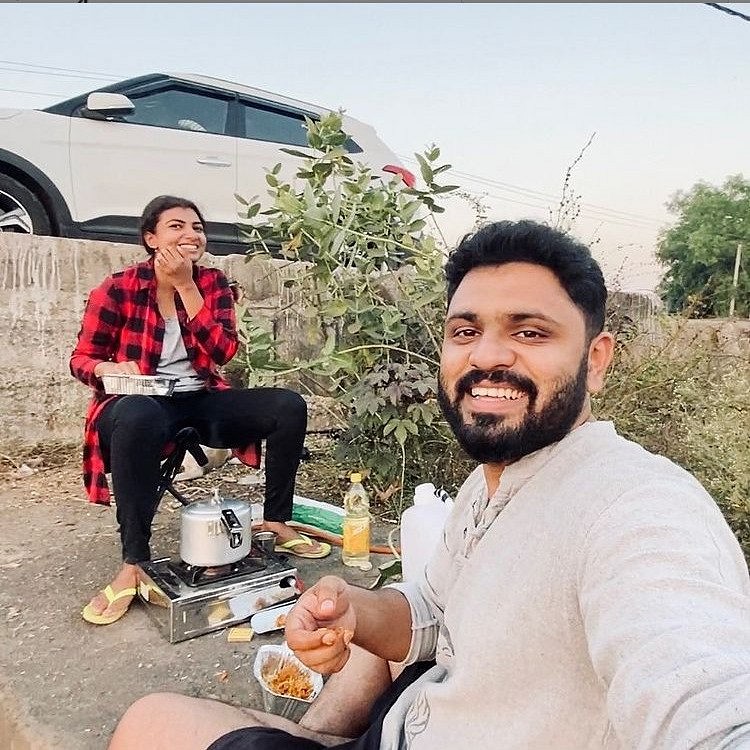
The couple has booked a hotel once and stayed at a relative’s house during the six-month journey. “In Kashmir, it was too cold to sleep inside the car, and in Rajasthan, we had to live at a relative’s place due to the curfew. Overall, the trip has been pleasant. Our biggest takeaway from this has been learning to live with minimal needs. You don’t need to visit supermarkets, malls or shops constantly to fulfil your needs. It can be done with most basic necessities,” says Harikrishnan.
Collecting memories
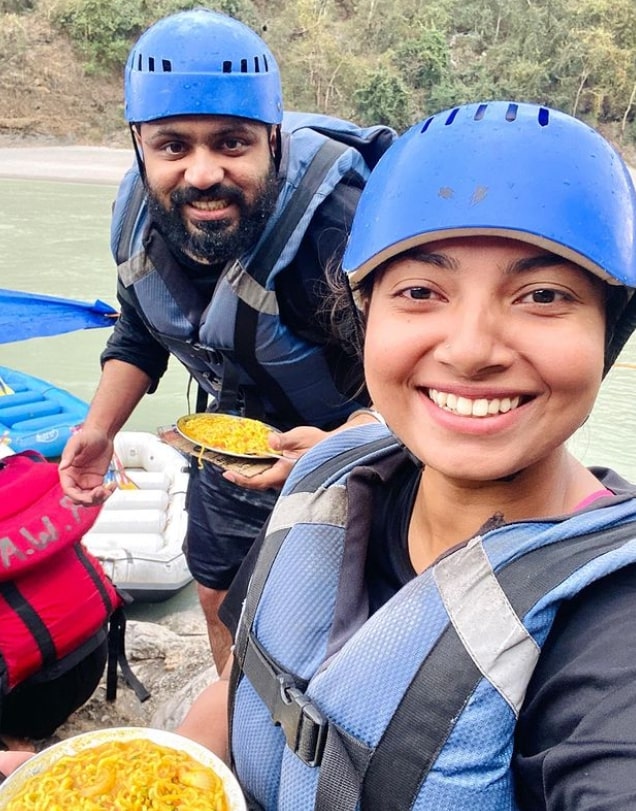
The couple strictly adheres to their mantra of themselves learning about a place’s history, culture and traditions while travelling, instead of relying on locals to guide them. For example, they read about Lonar Lake in Maharashtra’s Buldhana district in advance, and how it was created by a meteorite collision. Usually, people visit conventional places such as Mumbai and Pune while visiting the state, but their homework helped them discover this lesser-known but magnificent place. Likewise, they were stunned by the handicrafts in villages of Kutch.
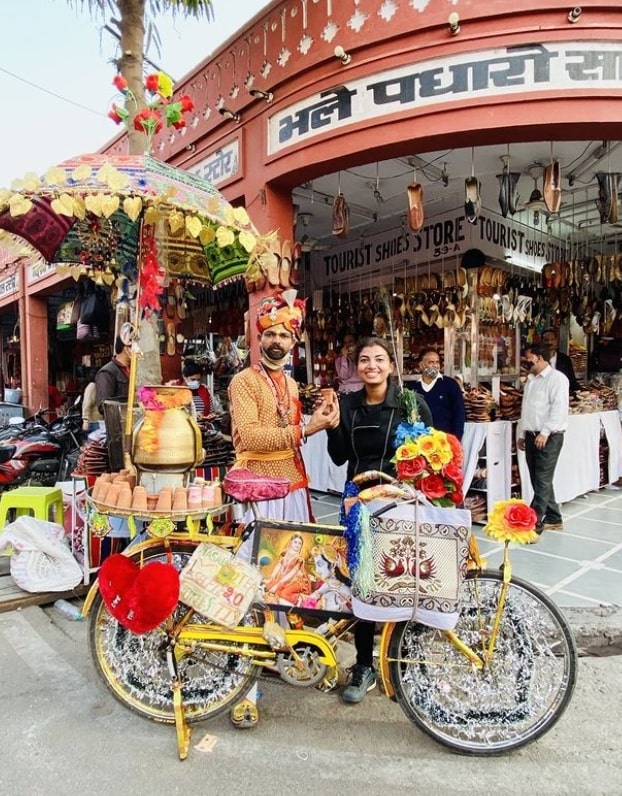
In Jaipur, they met Padma Shri awardee R K Derawala for his work in Bagru block printing. His grandson, Manu, gave them a tour of their printing factory. They also unexpectedly stumbled across Indian Coffee House where legendary painter M. F. Husain drank coffee in the pink city.
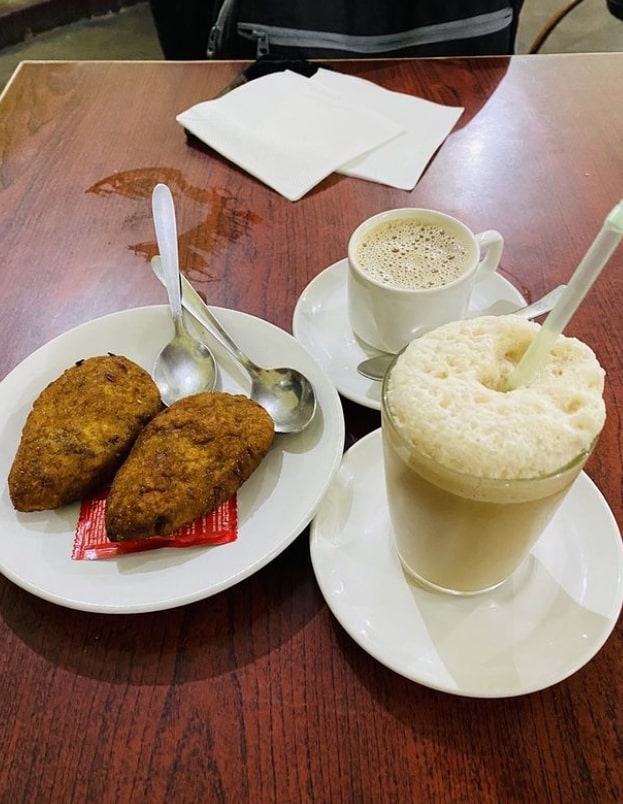
They visited India’s last village, Chitkul in Kinnaur district of Himachal Pradesh, which is 11,320ft above sea level. They made khichdi in temperatures as low as -10°C, which they say is one of their most treasured memories. The next morning, they visited the Indo-Tibetan border, and then drove for an hour to meet India’s first voter, 104-year-old Shyam Saran Negi in Kalpa village.
In terms of cuisine, they have tried every regional dish, including Sachin Tendulkar’s favourite breakfast, the famous Kolhapur Bawda Misal at a local restaurant. In Gujarat, fafdas and jalebis came to the rescue.
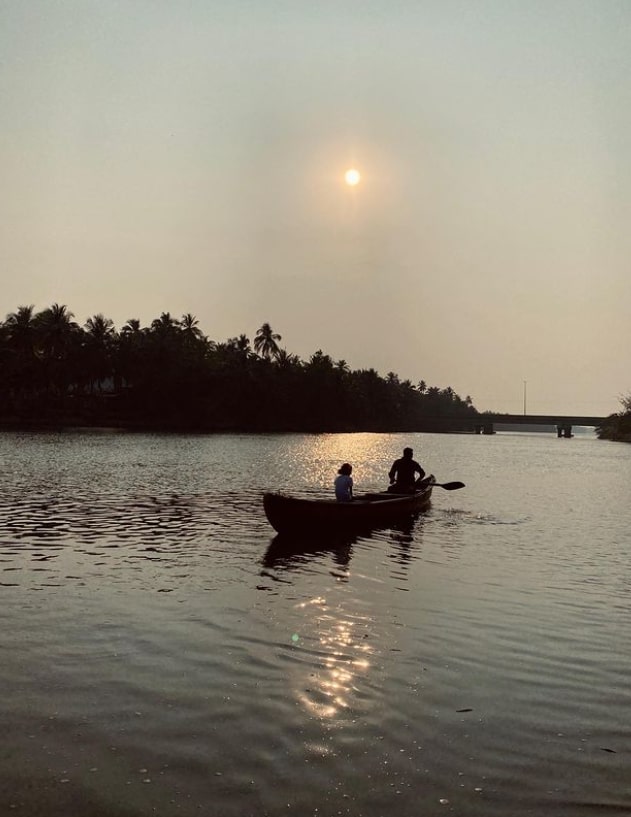
And finally, their encounters with people from different communities was their most enriching experience. Whether it was a father-daughter duo that gave them a free boat ride around the Hanging Bridge in Karnataka, the girls in a Rajasthan village welcoming them with their famous phrase ‘Padharo Mhare Desh’, a Kutch family that invited them to spend the night at their home or their interactions with the Siddi tribes of African ethnicity in Yelapur, Karnataka — they experienced immense outpouring love and kindness from strangers.
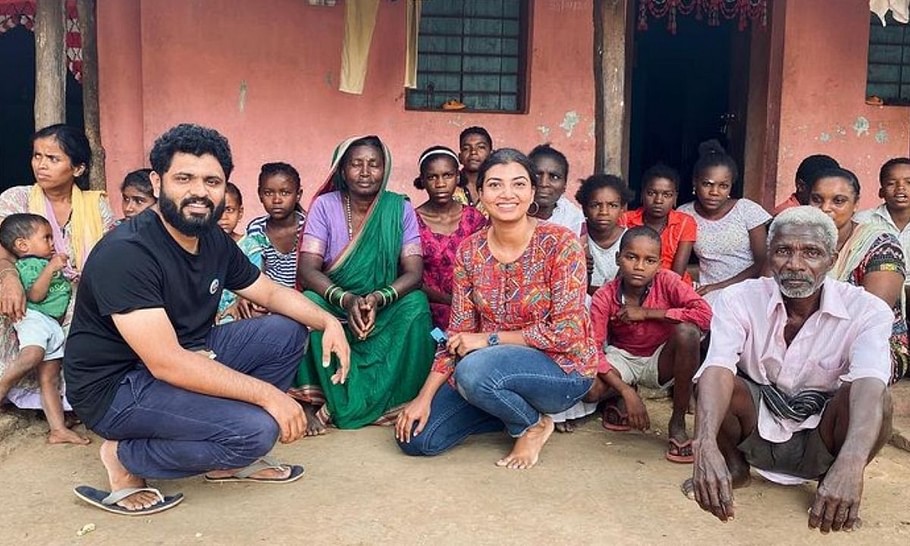
Their weekly videos and pictures are a testimony to this. The way they have shot and edited videos are engaging and hold a narrative. No wonder their subscribers shot from 10,000 to 1,00,000 in just a couple of months.
You can watch their vlogs here.
Edited by Divya Sethu
If you found our stories insightful, informative, or even just enjoyable, we invite you to consider making a voluntary payment to support the work we do at The Better India. Your contribution helps us continue producing quality content that educates, inspires, and drives positive change.
Choose one of the payment options below for your contribution-
By paying for the stories you value, you directly contribute to sustaining our efforts focused on making a difference in the world. Together, let’s ensure that impactful stories continue to be told and shared, enriching lives and communities alike.
Thank you for your support. Here are some frequently asked questions you might find helpful to know why you are contributing?


This story made me
-
97
-
121
-
89
-
167











